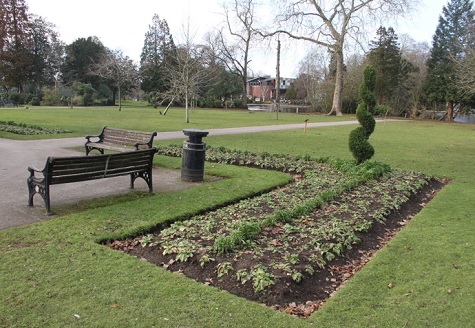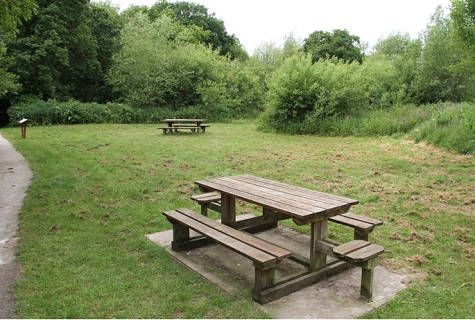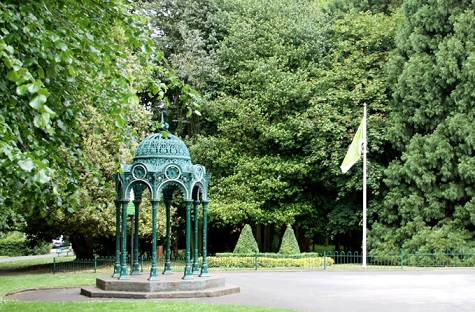As an ex local authority parks officer for Telford & Wrekin Council, and having started my working career as a parks apprentice with Birmingham City Council, I and indeed many other parks managers have been left to ponder what the future of parks and public open spaces will be, in the wake of the recent shocking announcement that Birmingham City Council has effectively declared itself bankrupt.
The council’s head of finance took the dramatic decision to issue a section 114 notice, indicating that it did not have the resources to balance its books. As stated in The Guardian, Woking, Croydon and Thurrock are among the other councils to also have made similar announcements recently after botched investment projects and deep funding cuts.

Cannon Hill Park, Birmingham
I, and many hundreds of experienced parks managers, have been worried for a number of years now on what the future holds for public parks and open spaces - especially as they have never been recognised as a statutory service.
It will certainly be interesting whether we will now see a number of other local authorities issuing 114 notices in the coming months and what impact this will have on the maintenance and management of parks and green open spaces.
For well over thirty years, we have seen a general eroding of public funds - especially those budgets assigned for the maintenance of parks. The extent of these cuts and their impact on maintenance, programming, and accessibility can vary.

Cannon Hill Park, Birmingham
But in the main, we have seen a dramatic cut in parks’ budgets, with many maintenance regimes slashed to the bare bones. Gone are the days when we boxed mowed the grass on a weekly basis.
Most parks departments now have radically changed and reduced their mowing regimes and are using the terminology of ‘rewilding’ as a positive cost-cutting exercise.
It was essentially the CCT (Compulsory Competitive Tendering) Act of 1988 that was a significant piece of legislation in the United Kingdom that had a significant impact on local authorities, including their provision and maintenance of parks.
The CCT Act introduced competition as a central principle in the provision of public services. Local authorities were required to open up these services to competitive tendering, which meant that private companies and other organisations could bid for contracts to provide park maintenance services.
One of the primary objectives of the CCT Act was to achieve cost savings and greater efficiency in the delivery of public services. Local authorities were encouraged to seek competitive bids, and the expectation was that this competition would lead to reduced costs and improved value for money in park maintenance.

Wirral Country Park
The CCT Act was controversial, and it faced criticism from various quarters. Critics argued that it prioritised cost savings over the quality of services and that it led to a loss of control by local authorities over important public amenities like parks.
The impact of the CCT Act on parks provision and maintenance varied across different regions and local authorities. Some areas saw significant improvements in the quality of park services, while others faced challenges, including disputes with contractors and concerns about service quality.
Over time, there were reforms and amendments to the CCT legislation, and the policy approach to outsourcing and competition in public services evolved. The CCT Act was eventually replaced by the Local Government Act 1999, which introduced Best Value as a framework for assessing and improving the delivery of public services.
However, the overall impact of the CCT Act of 1988 and the way the councils constantly restructured themselves had a significant impact on local authorities' provision and maintenance of parks in the UK.
Staffing levels were dramatically reduced in that time, along with the actual park’s budget now at an all-time low. Effectively I believe, we have been dumbing down parks services for far too many years.
For me, it is really down to the public to start to complain and demand better services - while at the same time realising they may have to pay more in council taxes to retain these essential services.
I am sure there are plenty of people who would be prepared to pay additional council taxes if they could be guaranteed this additional money would be spent wisely and efficiently.
However, in the light of the recent news, a lot of the blame falls on the councils themselves, who have failed in the management of their council budgets and more importantly wasted many hundreds of thousands on failed projects.

Victoria Park, Tipton
When I was a parks officer, I knew to the last penny how much I had spent in any one year and had a good understanding on managing parks’ budgets. However, these days when I ask a park professional as part of my Green Flag judging visits, what the budgets are for a particular park, very often they are not able to tell me. Either because they don’t know or the parks budget is part of a bigger scheme and they are not privy to that information.
I personally know from my own experiences how budgets can get lost or eroded away by other departments needs and politics.
So, what can be done? Well we have seen in recent years a number of options that have worked well. Some city councils explore public-private partnerships to help maintain and improve parks. These partnerships can bring in private investment for maintenance, upgrades, and new amenities in exchange for concessions or long-term lease agreements.
In the face of financial challenges, communities often play a crucial role in preserving and enhancing public spaces. Volunteer groups, nonprofits, and residents may organise clean-up efforts, fundraisers, or advocacy campaigns to support their local parks.

The Quarry, Shrewsbury
To make the most of limited resources, cities may prioritise sustainable practices in park management, such as using drought-resistant landscaping, energy-efficient lighting, and water-saving technologies and more recently the introduction of battery powered machinery.
It's important for residents and community stakeholders to stay engaged with their local government and advocate for the preservation and enhancement of parks and public open spaces.
Let’s hope we can find a solution to the future management of our valuable parks and public open spaces. As a member of the Parks Management Association who represent parks managers, it is vitally important to me that we can find a solution and more importantly lobby government ministers to find a way to secure future essential budgets to maintain the 398 principal (unitary, upper and second tier) councils in the UK. These councils, along with several trusts, charities and other organisations, manage between them 27,000 public parks across the country.